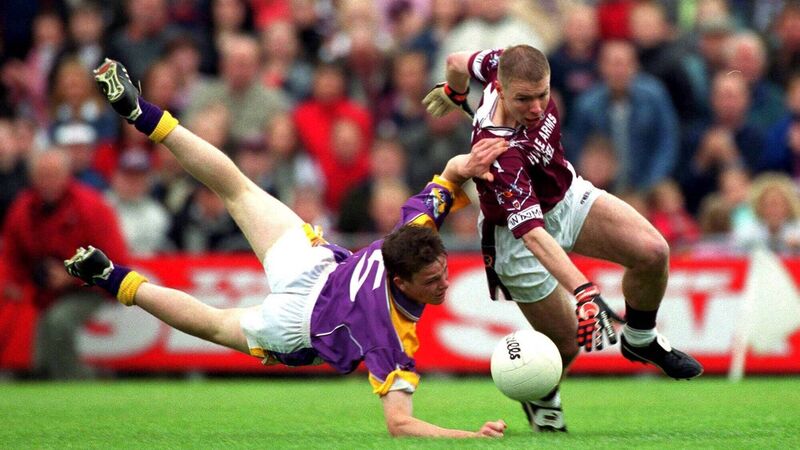Kieran Shannon: Provincial slant and no backdoor puts football in hurling’s shadow

BACK IN THE DAY: Westmeath's Cathal Keane and Wexford's David Murphy battle for possesion in their qualifier clash in 2001, the first ever year of football qualifiers. Picture: Ray McManus/Sportsfile
It hasn’t even got a mention, drowned out in the deluge of pieces celebrating the 30th anniversary of the start of the immortal Dublin-Meath four-game saga, but this week also happens to be the significant birthday of not just another historic GAA watershed moment but two.
Twenty years ago, on the weekend of June 9-10, we had the first-ever round of football qualifiers and the last time hurling teams would have no backdoor after losing a game in the provincial championships.









